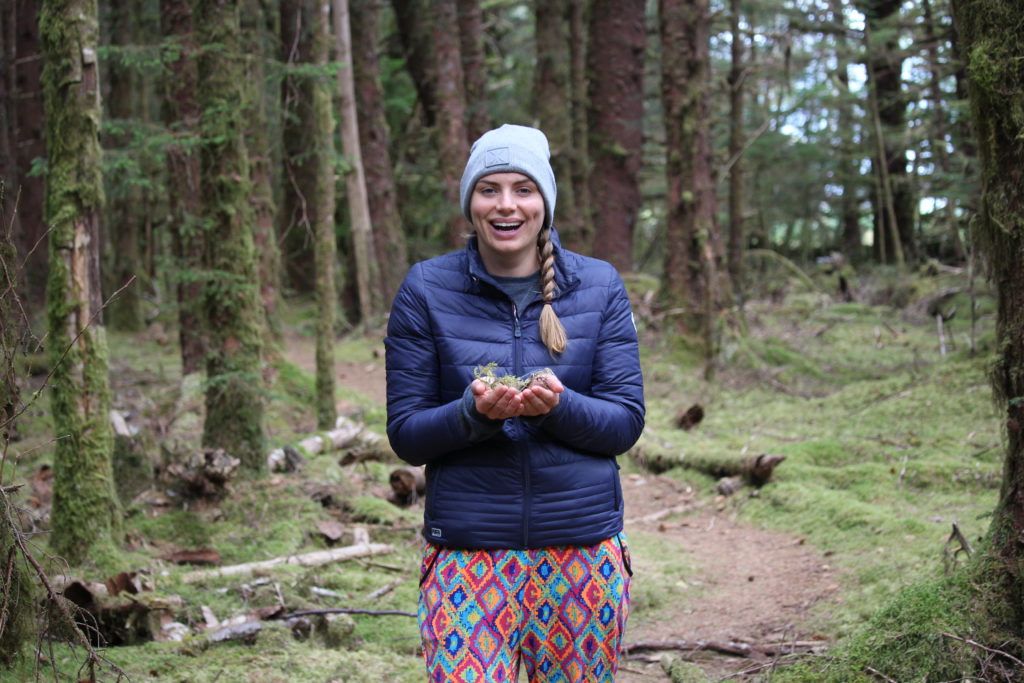Laura Plant (2009) is a Sustainability and Climate Change Consultant at PwC and is currently on secondment at PwC Vancouver, where she helps organisations in North America measure their total impact. Here she explains why understanding broader impact makes business sense.
I studied Natural Sciences, specialising in Plant Sciences (an example of nominative determinism, given my surname!). I loved learning about advances in science and technology that could change the world, yet when I asked my lecturers why we didn’t all have algae biofuels growing on our roofs, they told me it wasn’t ‘economically viable’ or there wasn’t the ‘political will’. That answer inspired me to place myself at the messy nexus of science, business and society to try to overcome some of those hurdles. Supported by St John’s, I studied for a Master’s in Environmental Economics and Policy in Land Economy, and used that as a springboard to join the Sustainability and Climate Change consulting team at PwC.
My work revolves around making the invisible visible. The negative social and environmental impacts that companies create – and for which they are not penalised – are known as externalities: they do not show up on a company’s balance sheet and therefore do not get factored into decision making. The Impact Measurement team at PwC wants to change this. We use concepts from environmental economics to put a dollar value on past damage and potential future damage caused by a company’s activities.

Take the example of a company that is releasing chromium into a river as a by-product of its industrial processes. The CEO might be informed of the number of kilograms of chromium being released and the cost of preventing that release. While the CEO understands the concepts of revenue, operating costs and profit margins, she is not an environmental scientist: kilograms of chromium are not a unit she is familiar with. She knows there are no regulations against chromium release in this particular location, so from her point of view, why should she pay to prevent it?
The work I do at PwC converts those kilograms of chromium into a monetary impact on society. I model how chromium travels through water bodies, how it impacts fish populations and therefore the local fishery economy, and how it comes into contact with people and thus impacts their health, wellbeing and economic output. This allows me to have a much more informed conversation with the CEO, which ultimately comes down to: ‘For every £1 you spend on preventing chromium release, you will help avoid £4 of societal impact.’ The CEO might then choose to invest because she cares about doing the right thing for the environment and society, or she might also realise it makes business sense. One day that ‘externality’ might become internalised and hit her bottom line, either through social unrest, negative publicity or the regulation or depletion of the resources her business is dependent on.

Of course, companies don’t just have negative impacts; by providing essential goods and services, creating employment and paying taxes, they can be very beneficial to society.
There are a number of initiatives available for companies who want to demonstrate that they are balancing profit and purpose, an example being the B Corp certification. Since 2007 when the B Corp movement began there have been over 2,500 companies registered as B Corps. Another key milestone in this movement is that, in August last year, 180 CEOs signed a Business Roundtable statement declaring that the ‘purpose of the corporation is to maximise benefits to all stakeholders not just shareholders’. These are great initiatives but there is still a long way to go before there is enough information for society to easily distinguish between ‘green-washing’ and truly sustainable companies. As consumers, I urge you to demand that companies be transparent about the broader positive and negative implications of their actions, beyond just considering financial trade-offs.
The impact valuation methodologies PwC uses are all based on the best available academic research on environmental impact and social wellbeing, so I am lucky to say that I use both my degrees every day in my job! Spending my professional time advising companies on creating positive impact has led me to also work on having a better ‘personal footprint’. I recently wrote a book of party games that aims to help people re-discover the joy of play that many of us grown-ups have forgotten. So although I may not have succeeded in getting algae biofuel farms installed on everybody’s roofs, I hope to create positivity through encouraging a bit more laughter in the world.
All profits from Laura’s book go to charity, and you can purchase it on anyonegame.org. To discover more about measuring impact, visit pwc.com/totalimpact.
Written by
Laura uses both her BA in Plant Sciences and her Land Economy Master’s degree in her current work as a Sustainability and Climate Change Consultant at PwC, where she measures the impact businesses have on the environment and helps companies understand why it makes business sense to reduce this impact.






